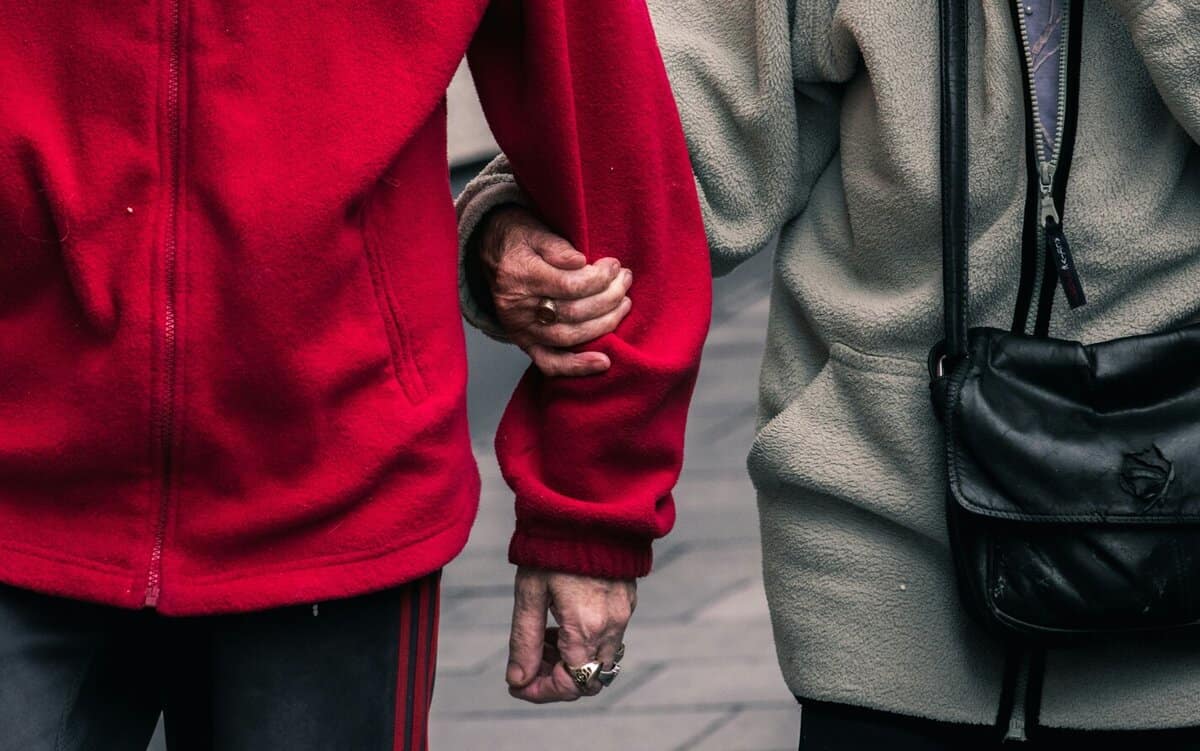Feeling emotionally safe in a relationship isn’t about grand gestures or perfection. It is about the small, everyday actions that build trust, understanding and comfort.
It’s knowing you can be yourself without fear of judgment or rejection.
When your partner consistently shows up with kindness, honesty, y respeto, it creates a safe space where love can truly thrive.
But what does that look like day to day? And how can you make sure you’re contributing to that sense of safety, too?
Let’s break down some simple, real-life behaviors that show emotional safety is alive and well in your relationship!
1. Open and Honest Communication

One key sign of emotional safety is feeling comfortable enough to share your thoughts and feelings without fear of criticism.
When you and your partner talk openly about your day, worries, or dreams – no matter how small – it shows trust.
Even if you disagree, you’re respectful and listen without resorting to defensiveness.
This kind of behavior creates a solid foundation where both of you feel heard and understood.
To keep this going, keep encouraging sharing and honesty, and remember that the ultimate goal is connection, not blame.
2. Respecting Boundaries and Personal Space

Respecting each other’s boundaries is a daily act that signals emotional safety.
Whether it’s giving space when needed or not pushing for more than someone’s comfortable sharing, it’s about recognizing that everyone has limits.
If your partner needs time alone, or they need to process something, honoring that shows you value their feelings and autonomy.
Likewise, setting your own boundaries and communicating them helps your partner understand what’s okay and what isn’t.
This sort of behavior fosters trust and reduces anxiety, making it easier to be vulnerable.
When boundaries are honored consistently, emotional safety naturally grows.
3. Validating Each Other’s Feelings

Every day, you can promote emotional safety by validating your partner’s feelings – even if you don’t see eye to eye on some matter.
Instead of dismissing or minimizing their emotions, acknowledge that they matter.
Making an effort to understand why they might be upset, or to put yourself in their shoes, helps your partner feel seen and accepted.
And validation isn’t always about fixing problems – it’s about showing empathy and understanding in spite of them.
When both of you practice this regularly, it creates a space where feelings are safe to express.
Over time, this behavior deepens emotional intimacy and makes your relationship a safe harbor during tough times.
4. Consistent Reliability

Doing what you say you will is a simple yet powerful way to foster emotional safety.
Cuando follow through on promises, no matter how small, it shows your partner they can count on you.
Whether it’s remembering an important date or checking in on a stressful workday, consistency builds trust.
Conversely, if you often flake or forget, it can create insecurity. So, make it a habit to be dependable.
Even if you’re busy, small gestures like sending a quick message or showing up on time go a long way.
It’s these everyday behaviors that reinforce safety and reliability.
5. Creating Space for Vulnerability

Vulnerability is at the heart of emotional safety. On a day to day basis, it’s crucial to encourage your partner to share fears, doubts, and dreams without judgment.
This might mean listening patiently when they open up about something personal or admitting your own uncertainties.
When you both feel safe to be imperfect, it strengthens your bond.
It’s important to note that vulnerability isn’t about oversharing all the time, but about creating a consistent environment where honesty is welcome.
Over time, these behaviors deepen trust and make your relationship a true safe haven for both of you.
6. Practicing Active Listening

Active listening isn’t just about hearing words. It’s about really understanding what the other person is saying.
When you pay attention, you put away distractions, y reflect back what you hear. It shows you care.
This behavior encourages your partner to share things more openly over time, knowing they’re truly heard. It also promotes empathy and reduces the chances of misunderstanding.
Consistent active listening is a daily practice that builds emotional safety by making your partner feel valued and understood.
7. Offering Reassurance and Affirmation

Everyone needs to hear words of affirmation regularly, no matter how long you’ve been together, or how obvious you think your feelings are.
Simple words of reassurance are powerful tools to boost emotional safety.
They remind your partner they are loved and accepted, especially during stressful or vulnerable moments.
You don’t need grand romantic gestures. Small comments and gestures, like a hug or a sweet text, count just as much.
When both of your practice giving and receiving reassurance, it creates a secure environment where doubts and fears are less likely to take hold.
These daily behaviors nurture trust and deepen your emotional connection.
8. Managing Conflict Calmly and Respectfully

Disagreements are normal, but how you handle them ultimately shows whether your relationship is emotionally safe.
Instead of yelling or blaming, maintaining a calm, respectful communication during conflicts signals safety.
It’s about listening, avoiding personal attacks, and working toward understanding rather than winning.
When conflicts are managed with patience and empathy, it fosters trust that disagreements won’t spiral out of control.
This habit of respectful conflict resolution makes the relationship resilient and safe for both of you.
Over time, this behavior encourages openness and reduces anxiety about disagreements, knowing they can be addressed constructively.
9. Showing Appreciation Regularly

A little appreciation goes a long way in building emotional safety.
Simple acts of thanking your partner for small things – making coffee, listening to you vent, or just being there – show you notice and value them.
When you consistently acknowledge each other’s efforts, it creates a positive cycle of kindness and respect.
Your partner feels appreciated and safe to be themselves because their efforts matter.
This daily habit of expressing gratitude helps deepen your emotional bond and makes your relationship feel nurturing and secure, even during tough times.
It’s about promoting the behavior that strengthens your connection.
10. Being Present and Mindful

Finally, being truly present with your partner, without distractions, sends a strong message of emotional safety.
Whether you’re having a conversation or having a quiet moment, giving them your full attention shows you value your time together.
Mindfulness helps you pick up on subtle cues, emotional needs, or unspoken worries.
It creates a calm, safe space where your partner feels genuinely seen and heard.
Small acts like putting away your phone or making contacto visual during conversation make all the difference.
This behavior reinforces that your relationship is the priority, and it nurtures trust and emotional safety every single day.
A little Aquarius, devoted to writing and embroidery. Through my writing, I hope to empower readers to align with their true selves and navigate life’s mysteries with confidence.

